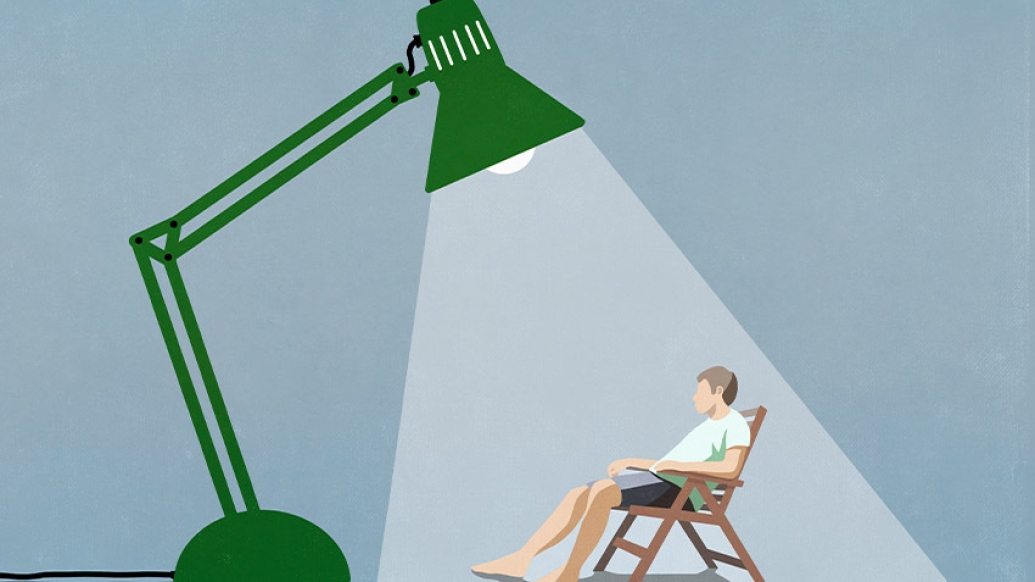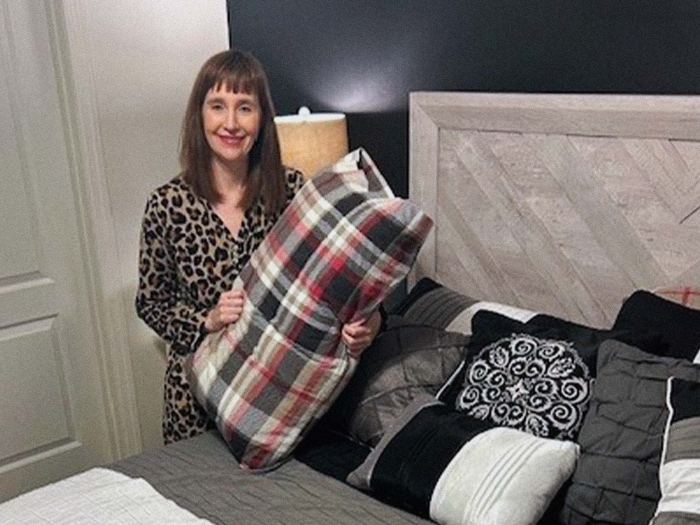A psychologist explains how to boost your mood, and your sleep, on a cloudy day with light therapy.
12:34 PM
Author |

Looking outside at another cloudy sky, on another dreary winter day in the Midwest?
Experts say it makes sense that a lack of sunshine leaves us grumpy and tired.
"The antidepressant properties of sunlight have been known since antiquity," says Leslie Swanson, Ph.D., associate professor of psychiatry at Michigan Medicine and an expert in behavioral sleep medicine at the Michigan Medicine Sleep Disorders Centers. "Morning bright light is an effective antidepressant for both seasonal affective disorder and non-seasonal depression."
Swanson says bright light increases mood-positive neurotransmitters, such as serotonin, in the parts of the brain that regulate mood. And you can reap those benefits using a light therapy box in your own home, if a sunny morning walk or commute to work isn't feasible.
And you may find yourself sleeping better, too. Swanson says morning bright light can resynchronize your internal clock and realign your circadian rhythms with your sleep-wake patterns, which improves sleep and increases alertness.
Who needs light therapy?
While anyone can find a boost from light therapy, Swanson notes it can be most powerful for people struggling with seasonal affective disorder or depression, along with those wanting to sleep better.
MORE FROM MICHIGAN: Sign up for our weekly newsletter
People who live further from the equator – say, for example, in the Mitten State – can be more vulnerable to seasonal affective disorder during dramatic seasonal reductions in light exposure, Swanson says.
She adds that people with eye conditions, people who use a medication that increases light sensitivity, people who have a medical condition like lupus that can impact light sensitivity, or those who have a history of bipolar disorder shouldn't try light therapy on their own – talk to your physician first.
Getting the most out of light therapy
Swanson has her patients start by sitting in front of a light therapy box for half an hour each day, as soon as possible after waking up.
"Make sure whatever device you choose filters out ultraviolet light, which can damage eyes and skin," she says.
Morning bright light is an effective antidepressant for both seasonal affective disorder and non-seasonal depression.Leslie Swanson, Ph.D.
She also recommends a box that produces 10,000 lux of light. They're easy to find online, she says.
"The brighter the light, the less time you need to use the lamp," Swanson says. While you're shopping, check how close you have to sit to the box to get the full 10,000 lux (some require you to be just a couple of inches away, while others can be set on a nearby table or shelf.)
If you don't like being tethered to the light box, new options like light glasses may be better for you, Swanson says. Consistency is key, so make sure you buy a device that you know will fit into your daily routine.
Swanson's patients tend to notice mood improvements within the first two weeks of treatment, and depending on their response, they might then slightly increase or decrease the 30 minutes spent in front of the light box.
"Although bright light has the most antidepressant effect when used in the morning, you can use light therapy throughout the day to increase alertness—but avoid use in the evening, because this can cause sleep difficulties," Swanson says.
And side effects can include headache or irritability, but those usually improve with ongoing use in a couple of weeks, she adds.
Even if you got your sunshine inside, moving your body with an outdoor stroll on a cloudy or snowy winter day is still a good idea, too – just get all of your exercise in at least a few hours before bed so you're able to wind down before hitting the sheets.
Like Podcasts? Add the Michigan Medicine News Break on iTunes, Google Podcast or anywhere you listen to podcasts.

Explore a variety of healthcare news & stories by visiting the Health Lab home page for more articles.

Department of Communication at Michigan Medicine
Want top health & research news weekly? Sign up for Health Lab’s newsletters today!





